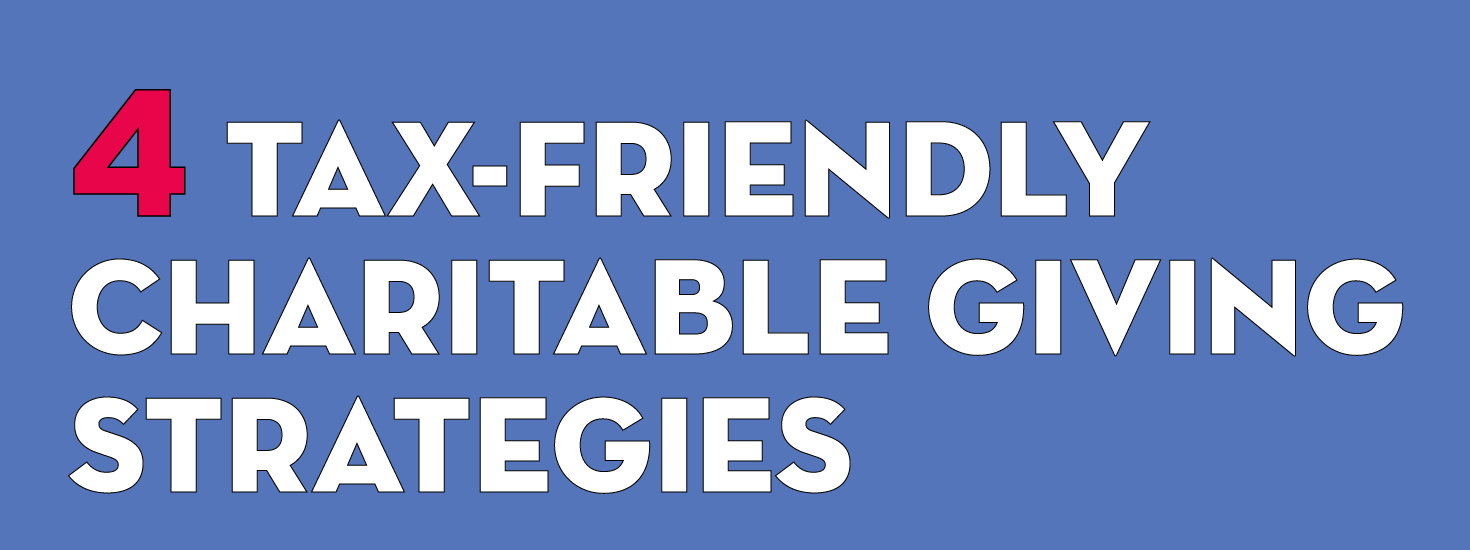Recent changes to the tax law have people wondering if they should change their charitable giving strategies. While the law is changing how charitable giving is deducted for some individuals, there are several beneficial giving strategies that can be used with the new tax law.
Grand Rapids Community Foundation relies on the donations of donor partners like you to bring people together to create a community where access, equity and opportunity exists for everyone who calls West Michigan home. We hope you will consider these four tax-friendly strategies this year and into the future:
1. Qualified Charitable Distribution (aka IRA Rollover)
Qualified Charitable Distributions are alive and well despite the changes resulting from the Tax Cuts and Jobs Act. In fact, QCDs may be more valuable than ever under the new tax law. This option is appealing for donors who may not rely on their full Required Minimum Distribution and are interested in making a charitable donation.
Wondering what this could look like for you? Read more about IRA Charitable Rollovers and how our friends Anne and Abe Rossi were able to:
- Avoid income tax on the funds transferred from their IRA
- Reduce their reported income because the rollover funds counted as part of their required annual minimum distribution
- Give more than they usually would to support the causes closest to their hearts
- Reduce the hassle of tracking their gifts and mailing in checks
“You don’t have to be a millionaire to share,” Anne said. “The process was easy.” Read the full article here.
2. Donating Highly Appreciated Stock
Donating highly appreciated stock can potentially provide donors with a current income tax deduction and allow them to avoid paying the tax on the unrealized gain. Shaun Shira, director of major and planned gifts, explains, “This approach has proven to be an effective strategy for individuals looking to make a greater impact with their philanthropy. In many cases, gifts of highly appreciated stock or mutual funds allow the donor(s) to make a larger gift than they normally would with cash assets.” Donations of highly appreciated assets can also be used in tandem with the concept of grouping donations and donor advised funds found below.
3. Grouping Donations
With the Tax Cuts and Jobs Act’s higher standard deduction, donors can benefit from grouping multi-year donations into a single tax year. This approach can help you exceed the higher standard deduction in the year of the donation.
“West Michigan has a culture and history of generous philanthropic support to nonprofit organizations working to make our community a more equitable place for all. Charitably inclined individuals that also enjoy the tax benefits of giving may consider grouping their donations into one year by writing a larger check (or gifting appreciated assets). This approach will get them over the standard deduction in the year of the gift and will continue providing support to the organizations they love. Many nonprofit organizations offer naming opportunities (endowment funds, scholarships, capital projects) for larger gifts – be sure to ask!” Shaun Shira, director of major and planned gifts
Note: You might want to let the nonprofit organization know that you may not be supporting them at this level in future years!
4. Donor-Advised Funds
Donor Advised Funds come with many benefits. Primarily, you are able to leave a philanthropic legacy for your family and community. With the help of expert staff, you can think strategically about how you want to donate funds over your lifetime and DAFs can be especially useful if you take the grouping approach mentioned in strategy number 3 by gifting highly appreciated assets in number 2!
Read “A Candid Conversations about Donor Advised Funds,” a recent article we published in PARTNERS in community, our quarterly magazine. Jonse Young, director of philanthropic services, answers your questions including the benefits of a DAF, how to create a sense of legacy through a DAF, and for whom a DAF might be a good giving strategy. Read the full article here!
Questions?
Our team is here to help! We have seen our community use a combination of these strategies, including using highly appreciated securities to group their donations by establishing a donor advised fund. You can reach any member of our development team at 616.454.1751.

